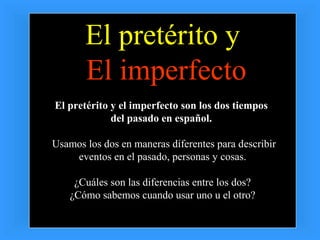El documento explica las diferencias entre el pretérito y el imperfecto en español. El pretérito se usa para acciones completadas en el pasado con un momento definido, mientras que el imperfecto se usa para acciones en progreso o habituales en el pasado sin un momento definido. El documento proporciona ejemplos detallados de cada uso.












